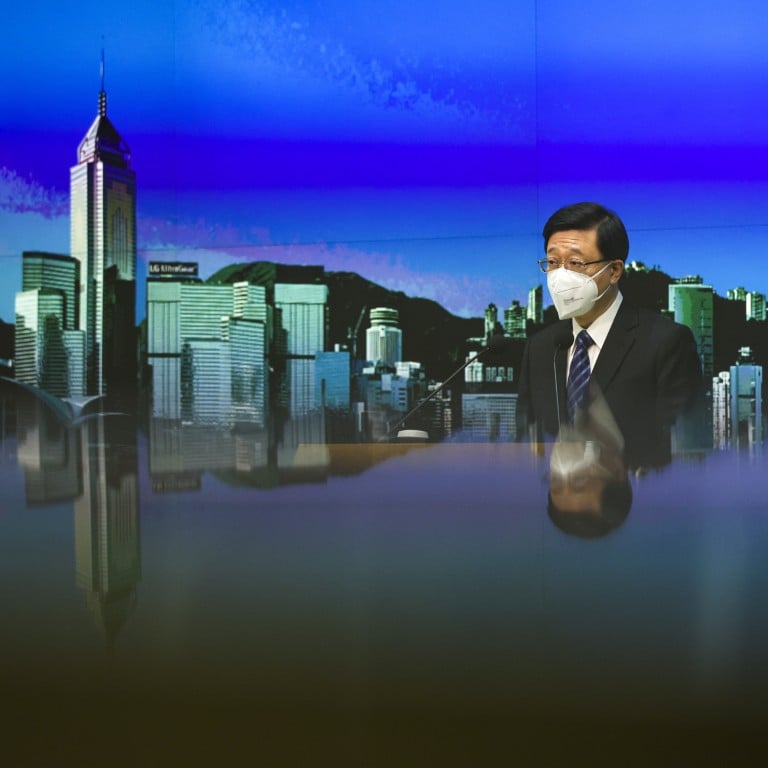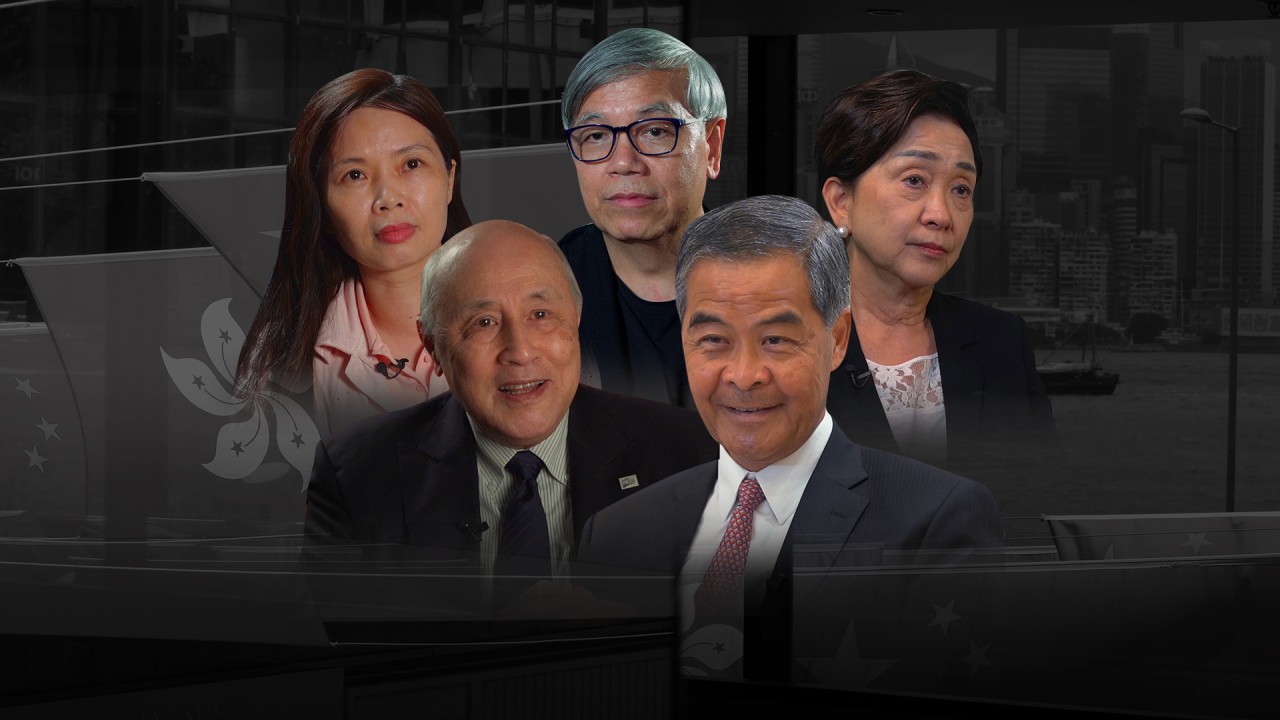Advertisement
Advertisement

Opinion
Alice Wu
Alice Wu
Look to the past for the fuel to drive Hong Kong’s return under John Lee
- As the city prepares for Lee’s first policy address, looking back 25 years to the first post-handover address could help the new administration
- Many of the challenges Tung Chee-hwa faced are still present today, as are the city’s advantages and fighting spirit that have carried it to this point
Chief Executive John Lee Ka-chiu is sure to be busy preparing for his first policy address speech on October 19. The government has been dropping hints about what we might expect, such as a doubling of the plastic bag levy and toll adjustments including a congestion levy for vehicles using the cross-harbour tunnels.
Financial Secretary Paul Chan Mo-po has been very vocal about what is to come. There will be “bold measures”, he said, for attracting investment, businesses and talent. But, as the government prepares to lead the city into the future, it would also be good for Lee and his team to look back.
And they could start 25 years ago, with the opening policy address from the first chief executive, Tung Chee-hwa. Hong Kong was a very different place then, but if we look at the main areas of concern for Tung, it seems like we are stuck in a time warp.
Addressing the city’s housing problem was a main focus for Tung. It’s a reoccurring theme really: the need to increase land supply, streamline government procedures, and build more public rental housing to meet applicants’ waiting time targets.
While the Tung administration still holds the record for the longest average waiting time for families to enter public housing – 6.6 years – the Lee administration has inherited an average six-year wait. That is double the target of three years by 2005 that Tung set in his first policy address.
We have had four previous chief executives, and the challenges remains much the same to this day. But there is reason for hope, because it is also from 25 years ago that we learned how tough and bold Hong Kong can be.
Tung had what many considered to be bad luck. The Asian financial crisis that hit in 1997 was unprecedented and took the roar out of the tiger economies, and it coincided with Tung’s first term.
Former chief executive Donald Tsang Yam-kuen, who was financial secretary at the time, together with Joseph Yam Chi-kwong, the first chief executive of the Hong Kong Monetary Authority and currently a member of Lee’s Executive Council, fought hard amid criticism that came from all directions in defending the Hong Kong dollar.
Yam boldly raised interest rates, and Tsang and Yam took on speculators. They did what many couldn’t imagine Hong Kong would ever do – market intervention – and won. The Hong Kong dollar did not collapse and we mitigated the worst effects of the crisis. That was a quintessential Hong Kong success story that spoke strongly to our resilience and resoluteness.
Why betting against the Hong Kong dollar peg is a fool’s errand
Why betting against the Hong Kong dollar peg is a fool’s errand
The pressure is on for Lee to deliver because, unlike his predecessors, many of the perceived political obstacles to governance have been removed. Tung introduced the Principal Officials Accountability System at the beginning of his second term to address the challenges he faced with the lack of cooperation of high-ranking civil servants.
The ministerial system has expanded with time. Lee now enjoys a very large team, alongside a civil service college, that should make the execution of new policies seamless.
Beijing has removed all obstacles and distractions in the political arena. The opposition in the legislature and on the ground is gone. National security legislation is keeping any alleged foreign interference at bay, and hence, there is no excuse for Lee and his government not to deliver.
Tung said in his 1997 policy address that, “To promote the well-being of the people is the most fundamental task of a responsible government.” That remains true to this day, and let’s hope Lee takes it to heart.
Many of the advantages Hong Kong had then remain today. Our financial reserves might not be as abundant, but to have reserves to speak of at all is the envy of many economies. Our sound and comprehensive legal system remains fundamental to our success and way of life. We remain the southern gateway to the mainland. So, there’s no reason we cannot make a comeback, if we have the political will.
Alice Wu is a political consultant and a former associate director of the Asia Pacific Media Network at UCLA

1


